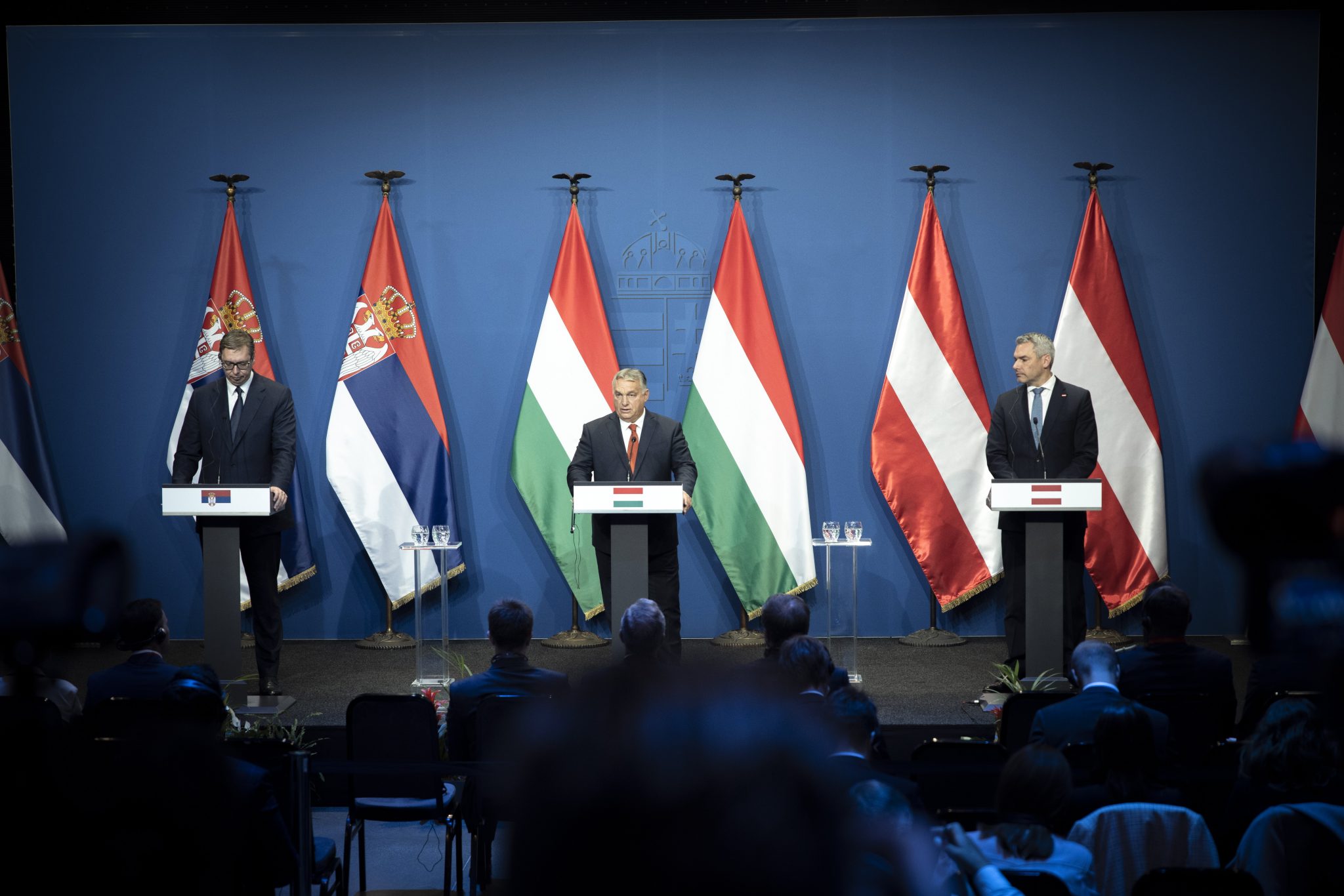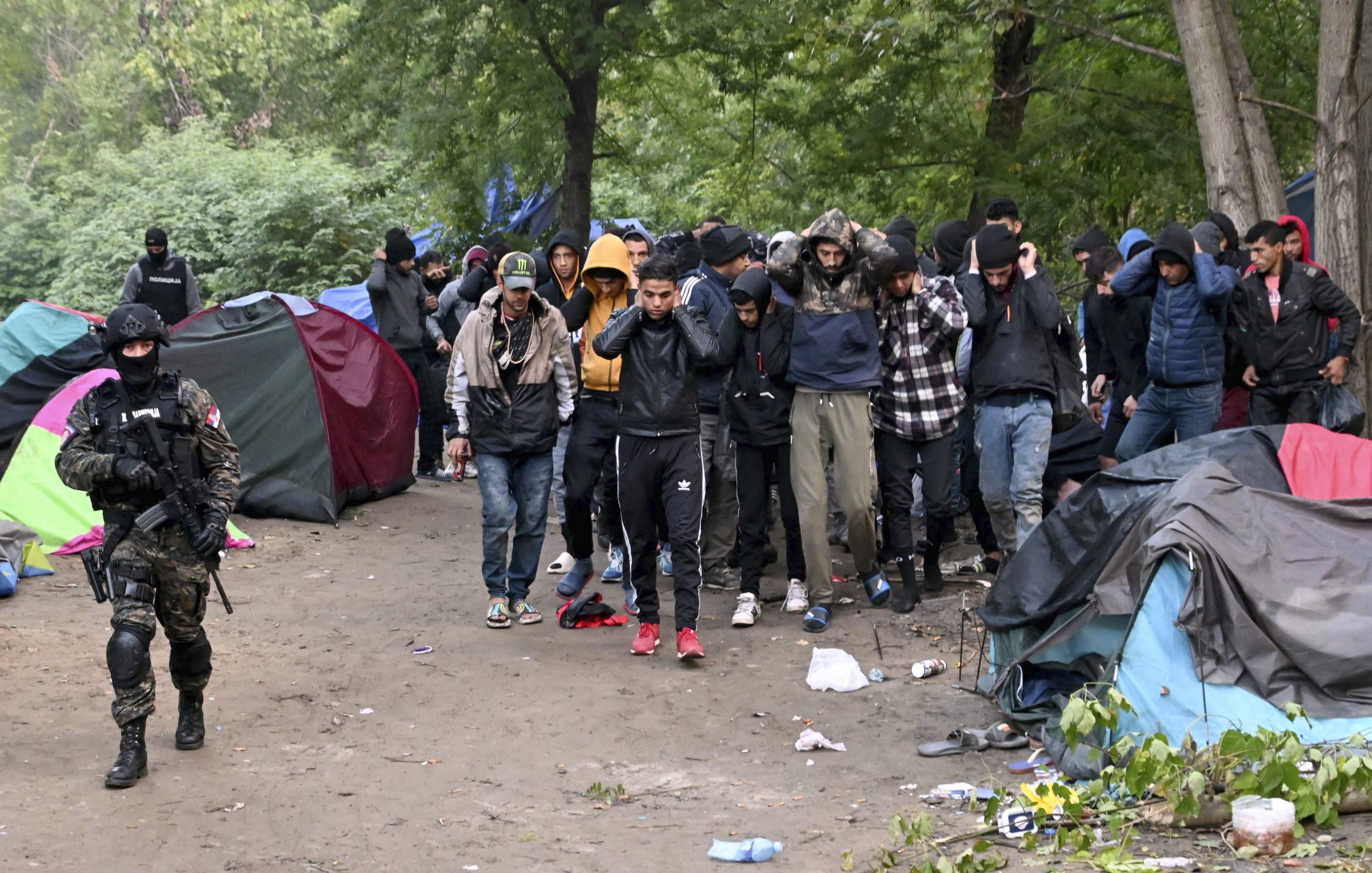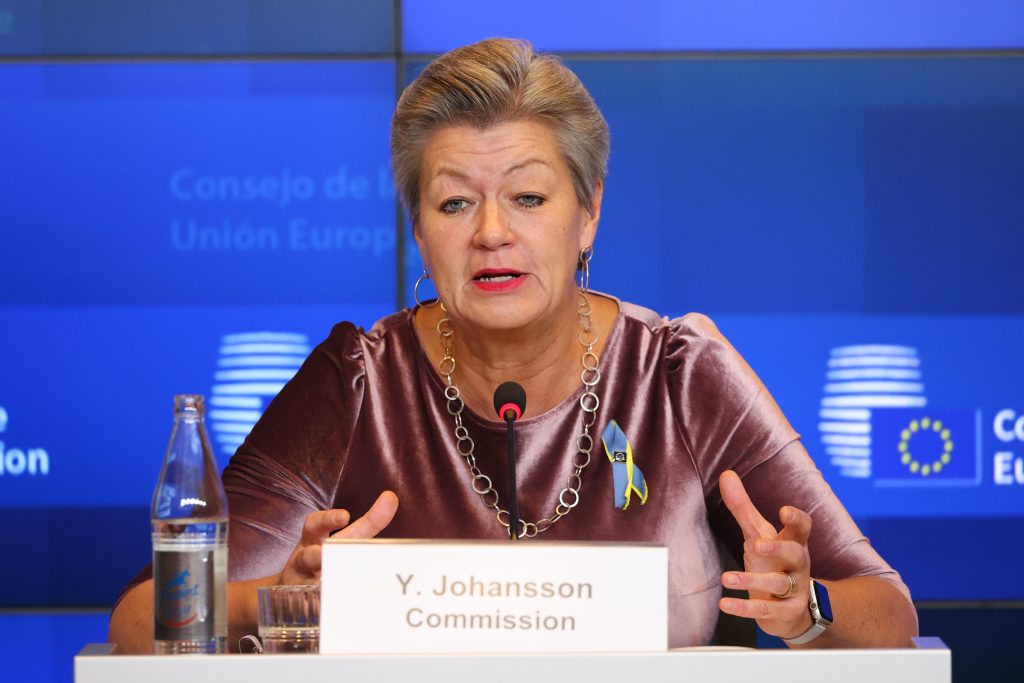
The prime minister pointed out that Hungary has already supported Austria, Serbia and North Macedonia, but they consider further measures necessary.Continue reading

Countries along the Balkan route, such as Hungary and Serbia, are under severe pressure from increasing illegal migration. The European Union is threatening Serbia with withdrawing its visa waiver. According to some politicians’ statements, this is not unrelated to Belgrade’s lack of support for the sanctions against Russia.
Serbia’s visa-free regime with the European Union could be at risk due to increasing migratory pressure. Ylva Johansson, Commissioner for Home Affairs, told journalists ahead of the Justice and Home Affairs Council in Brussels on Friday that she hopes Serbia and other Western Balkan countries will cooperate with the EU and align their visa policy with the bloc. Asked whether the EU has been considering suspending its visa-free deal with Serbia, the Swedish official said that she does not exclude taking this step.
Cubans, Indians, Burundians, and Tunisians are the main visa-free arrivals in Serbia, and citizens of these countries are increasingly applying for asylum in the EU, the Hungarian public service portal Hirado.hu reported. Their home countries do not have visa-free agreements with the EU.

Ylva Johansson speaking at the press conference in Luxembourg (Photo: Council of the European Union)
Euronews noted that “Serbia continues to allow visa-free travel to some countries that are excluded from the EU’s visa-free system, creating a point of friction. Serbia’s list includes Armenia, Azerbaijan, Bahrain, Belarus, Bolivia, Burundi, China, Cuba, Guinea Bissau, India, Indonesia, Jamaica, Kyrgyzstan, Kuwait, Kazakhstan, Mongolia, Oman, Qatar, Russia, Suriname, Tunisia, and Turkey.”
The visa waiver also affects Hungarians living in the northern part of the country, in Vojvodina (Vajdaság), in case they do not also have dual Hungarian-Serbian citizenship (a possibility for Hungarians living in regions that historically belonged to Hungary, but are now part of neighboring countries). Several local Hungarian media outlets have assessed Johansson’s statement as a possible punishment or sanction against Serbia. “Previously, there were also criticisms that Serbia ‘rewards’ states that do not recognize Kosovo’s independence with visa-free travel,” Pannon RTV recalled.
The website quoted German liberal MP Konstantin Kuhle, who called the Serbian government Russian President Vladimir Putin’s “extended arm in the Balkans.” “It wants to destabilize other European states and is causing human suffering with its refugee policy. The EU must not accept this. The accession negotiations with Serbia must be stopped,” he wrote.
Serbia has already been threatened by Brussels that accession negotiations could be held up – which are already on the back burner anyway – if they do not support sanctions against Russia.
Serbian news agency Beta reported that according to Frontex’s data, more than 106,000 migrants entered the EU illegally via the Western Balkans in the first nine months of 2022, which is an increase of 170 percent compared to the same period a year earlier. “The European Commission noted that the route was used mainly by Syrians, Afghans, and Turks, but that migrants also arrived from Cuba, India, Burundi and Tunisia,” it added. Ylva Johansson is scheduled to meet Western Balkan officials in Berlin next week.
In the first nine months of this year, about 228 240 irregular entries were detected at EU’s external borders, up 70% compared with the same period of last year.
It’s the highest total recorded for the first three quarters of the year since 2016 ⬇️https://t.co/ut56OXWtnK pic.twitter.com/uDcoa8ybmX
— Frontex (@Frontex) October 14, 2022
Earlier this month, Hungarian Prime Minister Viktor Orbán, Serbian President Aleksandar Vucic, and Austrian Chancellor Karl Nehammer held a summit in Budapest. “The economic downturn and the food crisis caused by the war and sanctions will also increase the pressure of illegal migration,” Orbán stressed. He emphasized that by protecting its southern border, Hungary fulfills its obligations as a member of the Schengen zone and protects Europe, too. “The goal is to move the defense line as far south as possible,” Orbán said.
Vucic said that the rising number of illegal migrants in Serbia is a growing problem. He remarked that the new EU visa policy, which will enter into effect on January 1, will make it more difficult to travel from Serbia to Western countries, and Hungary, Austria, and Serbia are developing a joint action plan for the law enforcement forces of the three countries. Vucic referred to the European Travel Information and Authorization System (ETIAS), which will require travelers from visa-exempt countries to register online and apply for travel authorization before trips to Europe.
Featured photo via MTI/AP/Ministry of Interior of Serbia